David Fuller: Man admits 1987 murders and abusing corpses
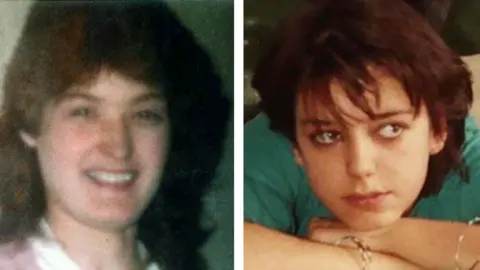 Kent Police
Kent PoliceA hospital worker has admitted murdering two women in 1987, and sexually abusing at least 100 female corpses, including children.
David Fuller, 67, of Heathfield, East Sussex, attacked Wendy Knell and Caroline Pierce in Tunbridge Wells.
On the fourth day of his murder trial at Maidstone Crown Court, Fuller changed his plea to guilty.
He previously admitted sexually abusing bodies in two Kent hospital morgues over 12 years.
Fuller had earlier admitted to killing the women subject to "diminished responsibility", but denied murder.
Mrs Justice Cheema-Grubb directed the jury to find him guilty on both counts of murder, after he was rearraigned.
Home Secretary Priti Patel said: "This is a shocking case. The sickening nature of the crimes committed will understandably cause public revulsion and concern.
"I would also like... to remember Wendy Knell and Caroline Pierce, two young women who had their lives brutally taken away from them over 30 years ago. I hope their families can find some solace in seeing justice finally done."
Warning: this article contains information some people may find distressing.
Fuller previously admitted sexually abusing bodies in two Kent hospital morgues over 12 years.
Ahead of the trial he had pleaded guilty to 51 offences, including 44 charges relating to 78 identified victims in the two mortuaries where he worked as an electrician.
Ms Knell's family said in a statement that "it's good knowing he will not be in a position to hurt or cause any more pain".
A date for sentencing has yet to be set.
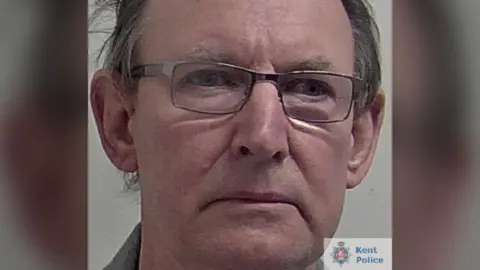 Kent Police
Kent PoliceInvestigators said the case came together following recent advances in DNA testing - and a huge police operation costing £2.5m - which linked Fuller to the double killings, dubbed "the Bedsit Murders".
His saliva and other DNA was found on Ms Knell's bedding, towel and intimate samples.
His semen was also found on Ms Pierce's tights, the only item of clothing she was wearing when her body was found in a water-filled dyke three weeks after her abduction.
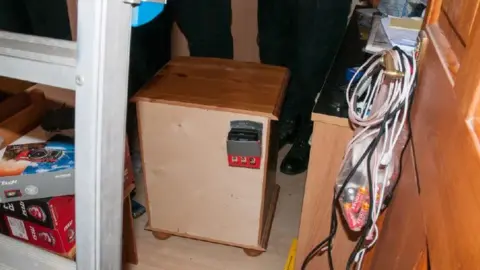 Kent Police
Kent PoliceFollowing his arrest for the murders, a search of Fuller's home revealed he had hoarded millions of indecent images and videos of children and extreme pornography on hard drives, floppy discs, DVDs and memory cards in his loft and spare room.
Two of the drives were hidden in a box, which was screwed to the back of a chest of drawers and placed inside a wardrobe. On these drives officers found footage Fuller had recorded of himself abusing corpses in the morgues.
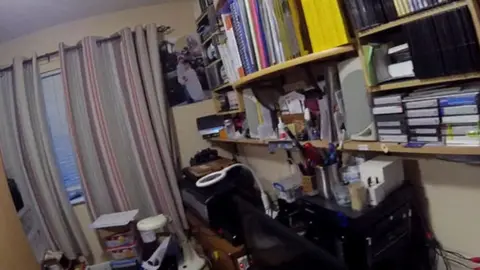 Kent Police
Kent PoliceFolders, some labelled with the names of the victims, contained images and videos of him molesting female bodies, including three children, between 2008 and November 2020.
Police have been unable to identify 20 of the victims.
Det Ch Supt Paul Fotheringham: "Sadly, it is likely to be the case that some of the victims will never be identified.
"In these cases there is such limited information available to help us with establishing their identities, and there are no lines of enquiry outside of the investigation that can assist us."
Fuller worked in electrical maintenance at hospitals since 1989 and was at the Kent and Sussex Hospital, until it closed in September 2011.
He was transferred to the Tunbridge Wells Hospital at Pembury, where the offences continued until his arrest.
Investigators said Fuller would work late shifts and go into the morgue when other staff had left, often "visiting the same bodies repeatedly".

A bespoke £1.5m victim support programme
Fuller's offending in the mortuaries is not something Kent Police, or any other force in the country, has ever had to deal with before.
Over the past nine months a bespoke package of care has been created with Victim Support, specially designed for this case.
It has cost £1.5m and involved drafting in 150 police family liaison officers, who were put through specialist training.
The families of the identified victims were visited for the force to break the news, and their assigned liaison officers will continue to support them going forward.

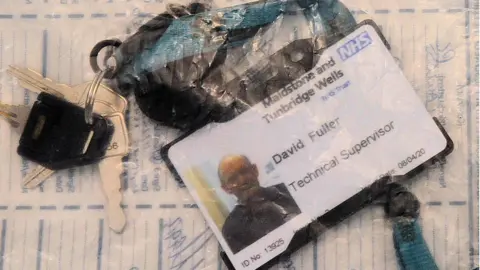 Kent Police
Kent PoliceThere is evidence Ms Knell was raped during or after her death, the court heard.
Ms Knell was killed in her home in Guildford Road on 23 June 1987. She was found in her bed by her boyfriend the following day, after concerns were raised when she failed to turn up to work.
In a written statement released after Fuller changed his plea, Ms Knell's family said for 34 years they had wanted to know who killed her, and "how she spent her last moments alive".
"We now know, and sadly it's much worse than we could ever have imagined.
"Hopefully, we can now start to grieve and move past the pain and start to remember her as the beautiful, kind, generous, caring, funny girl she was.
"Although the guilty plea won't change anything deep down, as the pain and loss will always be there, it's good knowing he will not be in a position to hurt or cause any more pain."
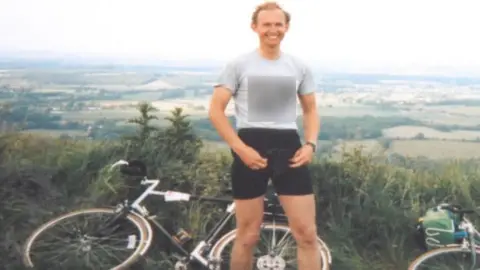 Kent Police
Kent PoliceWhat happened to Ms Pierce after she was abducted from outside her home in Grosvenor Park on 24 November is less clear.
Neighbours reported hearing screaming, but it took three weeks for her body to be spotted by a farm worker, more than 40 miles away in Romney Marsh.
Police said it was very likely Fuller met both women before he killed them.
Fuller was a customer of SupaSnaps, the photo development chain on Camden Road where Ms Knell worked.
Photos and diary entries found in Fuller's home also show he went to Buster Brown's restaurant, on the same road, where Ms Pierce was a manager.
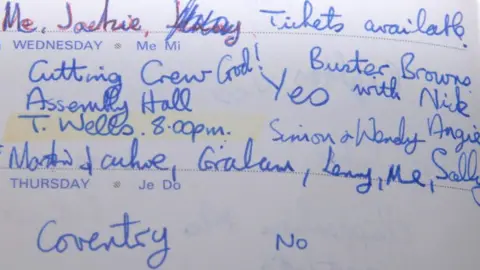 Kent Police
Kent PoliceFuller kept a record of having carried out at least 30 burglaries, dubbed by police as "creeper-style", during the 70s.
But he never served time in prison, and the offending preceded the police DNA database.
Health Secretary Sajid Javid said the NHS had written to all trusts asking for mortuary access and post-mortem activities to be reviewed in the wake of the case.
Miles Scott, chief executive of the Maidstone and Tunbridge Wells NHS Trust, said: "I want to say on behalf of the Trust, how shocked and appalled I am by the criminal activity by David Fuller in our hospital mortuary that has been revealed in court.
"And most importantly, I want to apologise to the families of those who've been the victims of these terrible crimes."
He said: "I am confident that our mortuary today is safe and secure. But I am determined to see if there are any lessons to be learned or systems to be improved."
The trust has commissioned an independent investigation into the case to identify anything that could have been done differently.

Follow BBC South East on Facebook, on Twitter, and on Instagram. Send your story ideas to [email protected]
